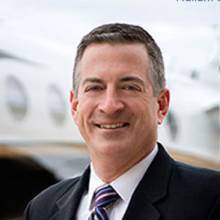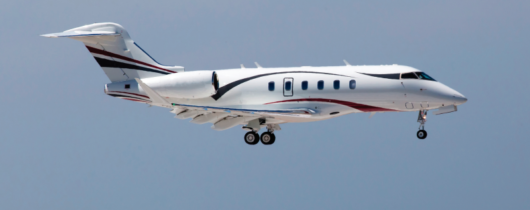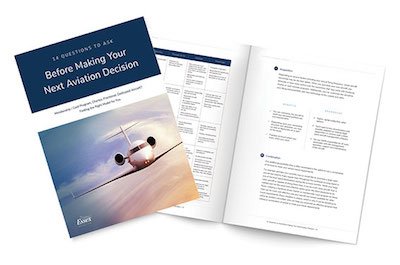
The Client
New England Donor Services (NEDS) is a nonprofit organization based in Waltham, Massachusetts, that coordinates organ and tissue donation throughout New England and Bermuda. Through its two affiliated organ procurement organizations, LifeChoice Donor Services and New England Organ Bank and with its centralized tissue donation services operation, NEDS serves over 200 donor hospitals (including 14 are transplant centers) and thousands of donor families each year.
As the nonprofit’s Director of Organ Operations & Surgical Recovery, Christopher Curran is responsible for overseeing the teams that handle organ allocation, the logistics of organ recovery, organ transportation and more. Time is a precious resource for Chris and his team and it can literally mean the difference between life and death for patients awaiting a transplant — so fast, safe, dependable transportation is vitally important.
“I need to be able to pick up the phone and access a plane to deliver life-saving organs at any hour,” said Chris. “And I need to know, with comfort, that when I put the people who work for me on a plane at 3:00 am that they’ll be transported safely.”
Additionally, as a nonprofit, it is important that NEDS maintain the public’s trust by using its funding wisely and controlling costs wherever possible.
The Challenge
Since safety, reliability and around-the-clock availability are chief concerns for Chris and his staff, it was important for him to ensure that NEDS was receiving the best service possible (for the best price possible) from their private aviation service provider. Without a working knowledge of aviation compliance and performance standards, Chris opted to contract the services of a consulting agency to conduct an operational audit on NEDS’ utilization of chartered aircraft.
After a friend of NEDS President and CEO Alexandra K. Glazier recommended Essex Aviation’s aircraft advisory services, Chris reached out to Lee Rohde and Thomas Mitchell of Essex. Impressed by thier level of experience and excellent references, NEDS retained Essex’s services.
Essex walked Chris through the audit process step-by-step. Since they knew that safety was a priority, Essex took care to explain the distinctions between different charter pilot training methods, safety training methods and safety management systems. Essex also emphasized the importance of a functioning safety culture, which stood out to Chris. “We knew that we needed flight crews who use exceptional judgement and always want to improve processes,” he said, “and (pilots) reporting everything, even their mistakes, is an essential part of making that happen.”
The Solution
Based on the results of the audit, NEDS made the decision to engage Essex’s consulting services. Essex worked with Chris and colleagues to complete a needs assessment — analyzing NEDS’ past use of aviation services to determine current and future needs — and then helped NEDS identify a unique aircraft leasing option that satisfied NEDS financial objectives. Chris also needed to find a candidate to manage the aircraft, so Essex used their extensive network of industry contacts to help him find the right aviation management company.
When the organization’s three-year aircraft lease was approaching the end of its term, Chris went back to Essex to re-evaluate NEDS’ needs and options; NEDS decided to also explore the benefits that owning an aircraft can provide versus another lease. After additional analysis, during which NEDS weighed the pros and cons of lease vs. purchase, they decided that the purchase of a dedicated aircraft was the best option for NEDS to pursue to meet their future travel requirements. Essex negotiated the acquisition, handled the inspection and transfer of ownership as well as helped NEDS develop an aviation management plan.
The Conclusion
Essex was able to provide the consulting services necessary to help NEDS achieve the safety standards and aircraft availability it needs for its 24/7 life-saving missions.
The relationship between NEDS and Essex continues to evolve: As the methods of how organs are allocated in the United States change, so, too, does NEDS’ aviation needs and requirements to meet the evolving needs of the patients and doctors NEDS supports. Organs now need to be transported across larger geographic regions, which means Chris’s staff and transplant surgeons are spending more time in the air flying to hospitals to retrieve organs. To address this growing need, Essex has often assisted Chris to find supplemental planes when the organization’s primary aircraft is unavailable.
Chris continues to be impressed by Essex’s dedication, professionalism and expertise.
“When we’re on a life-saving mission, we need to know that we can get where we need to go as safely and reliably as possible. Lee and Tom have given us the tools and the system to accomplish that,” he said. “It was evident from our very first encounter that they were drawn to the idea of helping people. I want others in our community to know that (Lee and Tom) can help them, too.”
To download the full case study click here: Essex Case Study







